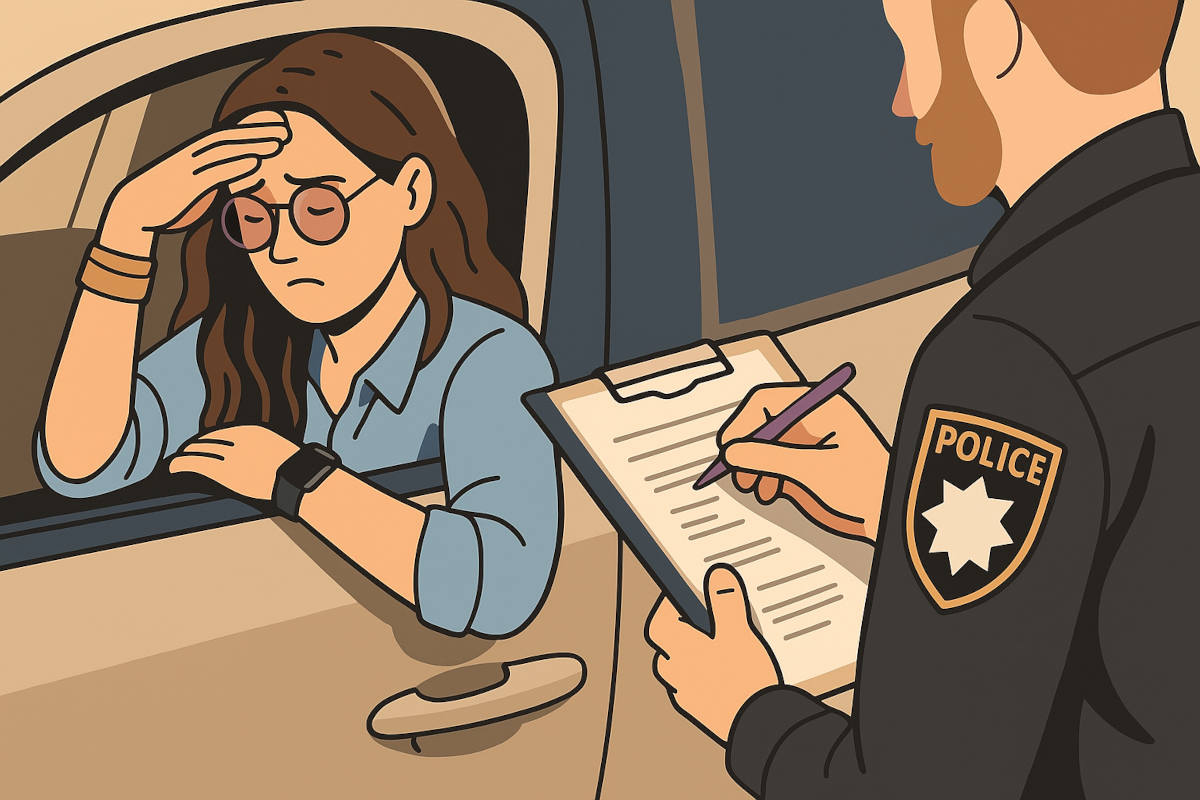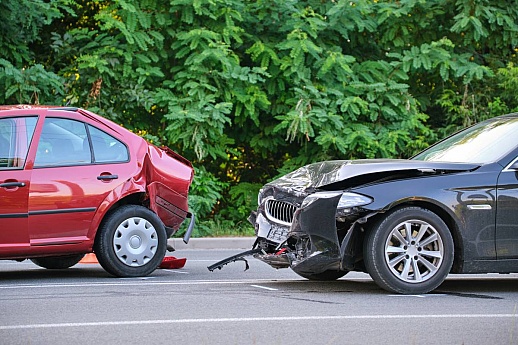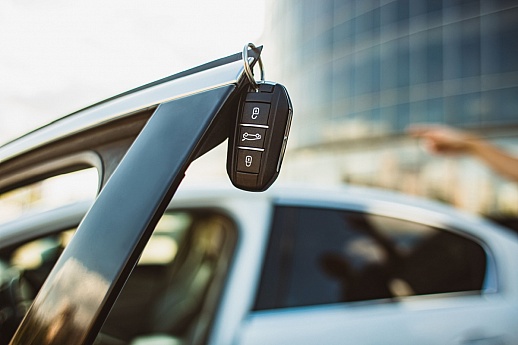Citation vs. Ticket: Is There a Difference?
You roll through a stop sign, thinking no one’s around, but flashing lights suddenly appear behind you. Or you park in a no-parking zone, thinking it’s fine for a few minutes, only to find a slip of paper under your wiper.

In both cases, you’ve been issued a ticket or citation. But do these words mean the same thing, or is there a difference? Let’s break down citation vs. ticket, when citations or tickets are issued, how to handle them, and how they impact your insurance.
Legal Definitions: Citation vs. Ticket
The difference between citation and ticket depends on the context in which these terms are used. Let’s closely examine the citation vs ticket below:
What Is a Citation?
What is a traffic citation? It is an official notice issued by law enforcement when you violate a traffic law. This document outlines the offense and may require you to pay a fine, contest the charge, or appear in court.
A traffic citation contains essential details such as your name, driver’s license number, the date, time, and location of the violation, a description of the offense, the violation code, and the acceptable amount.
The term “citation” is commonly used in legal and administrative proceedings, including disputing violations, paying traffic fines, or attending court hearings.
What Is a Ticket?
Citation vs ticket—these terms are often used interchangeably because they mean the same thing. A ticket is simply the informal term for a citation. However, some jurisdictions issue tickets with fines first and escalate repeated offenses to a formal citation.
You'll often hear "ticket" in casual conversations, such as when a police officer hands you one for a violation or when your insurance provider discusses your driving record.
What Is a Written Warning?
Now that you better understand citation vs ticket, you should also know the distinction between a citation and a written warning. An officer may issue a written warning when you commit a minor traffic violation, or it’s your first offense.
Unlike citations, written warnings don’t result in fines or points on your driving record but serve as a caution. For example, if you’re stopped for a dim headlight, you might receive a warning advising you to correct the issue promptly to avoid future penalties.
Different Types of Citations and Tickets
Discussions about citations vs tickets won’t be necessary if all drivers follow traffic laws. Unfortunately, that’s not the case. Traffic citations are issued for various violations drivers may commit, which fall into the following categories:
Moving Violations
A moving violation happens when you break traffic laws while your vehicle is in motion. These violations are serious because they directly affect road safety. They can lead to fines, increased insurance rates, license points, or even criminal charges. Some of the most common moving violations include:
- Speeding: Driving over the posted speed limit or driving too fast on the road and in weather conditions is illegal. Under absolute speed laws, even one mile per hour (mph) over the limit is a violation. However, in states like California and Texas, presumed speed laws allow you to argue that your speed was safe, given the current road and weather conditions.
- Running a Red Light or Stop Sign: Entering an intersection after the traffic light turns red or failing to stop at a stop sign is dangerous. These violations often result in fines, driver's license points, and increased insurance premiums.
- Following Too Closely (Tailgating): Rear-end collisions often happen when drivers don’t maintain a safe distance. Car blind spots make this risk more significant, as failing to see a slowing vehicle ahead can lead to accidents.
- Reckless Driving: Operating a vehicle with disregard for safety, such as excessive speeding, aggressive lane changes, or ignoring traffic signals, is a severe offense. Penalties can include heavy fines, license suspension, and possible jail time.
- Driving Under the Influence (DUI) or Driving While Intoxicated (DWI): Driving while impaired by alcohol or drugs carries severe consequences, including fines, license suspension, and incarceration. The difference between DWI and DUI depends on the state, with some using DWI for lower impairment levels and DUI for higher blood alcohol concentration (BAC) or drug impairment.
Non-Moving Violations
You can receive a driving citation for a non-moving violation, whether a vehicle is in motion or parked. These violations do not relate to how a driver operates a vehicle; instead, they focus on compliance with legal and safety regulations.
While they may seem minor, non-moving violations can result in fines, license suspensions, or other penalties. Here are some examples of non-moving violations:
- Driving Without Car Insurance: Law enforcement can cite you for failing to present valid proof of car insurance upon request. An acceptable proof of insurance is a valid insurance card with details such as the policyholder's name, car insurance policy number, coverage dates, and insured vehicle. For a first offense, fines typically range from $100 to $500, and penalties may include vehicle registration suspension or even a driver’s license suspension for up to one year, depending on state laws.
- Parking Violations: Illegally parking in restricted zones, expired meter spaces, or handicapped spots without proper authorization can lead to fines and potential towing.
- Driving Without a Seatbelt: Failing to wear a seatbelt increases the risk of injury and can lead to citations. Fines vary based on location and whether the violation involves the driver or a passenger.
- Equipment Violations: Operating a vehicle with defective or missing equipment—such as broken headlights, malfunctioning windshield wipers, or cracked windshields—can lead to citations. Many jurisdictions issue fix-it tickets, requiring you to repair the issue and provide proof of correction.
Criminal Citations
Traffic violations that cause harm, damage property, or pose serious risks can be classified as misdemeanors or felonies. These crimes involve severe consequences such as high fines, lengthy prison sentences, and a permanent criminal record. Examples of criminal citations are as follows:
- Leaving the Scene of an Accident: Drivers must leave a note if they hit an unattended vehicle and report accidents with injuries or damage. Failure to comply can lead to citations or criminal charges. Fleeing an accident involving injury or death may result in felony prosecution.
- Vehicular Manslaughter: Causing a fatality through reckless, negligent, or impaired driving is a serious felony. In California, felony vehicular manslaughter with gross negligence can lead to fines of up to $10,000, 2–6 years in prison, restitution to the victim’s family for expenses, and strict probation.
How Citations and Tickets Affect Your Insurance
Traffic violations come with more than just fines. They can also lead to higher insurance costs, so you must enhance your knowledge of citation vs. ticket with information on how citations impact insurance rates.
Whether your premium increases depends on the type of offense, how often you receive citations, your state's laws, and your insurance provider's policies.
After a traffic violation, your insurance company may review your driving record to assess risk. Most states assign demerit points for traffic violations, which typically stay on your record for three to five years for minor offenses and up to ten years for major ones.
A single speeding ticket for going less than 10 miles per hour (mph) over the limit may not trigger an increase if your record is clean. However, repeated violations or excessive points can lead to higher premiums.
Insurance companies adjust rates differently. Nationwide increases rates between 1.15 and 1.63 times for minor and major offenses, while USAA raises them by 1.08 to 1.42 times for the same violations. That is why you should compare multiple providers, choose the best auto insurance company andsave on car insurance.
Non-moving violations, such as parking tickets, generally will not affect your premium unless they go unpaid. In contrast, more severe offenses, like hit-and-run violations, can cause a 95% increase.
What Do You Do If You Get a Citation or Ticket?
Receiving a citation or ticket can be frustrating, but you must take it seriously. Follow these steps to handle a traffic citation properly:
Review The Citation
Examine the citation closely to ensure all information is correct, including your name, vehicle details, and the alleged violation. Errors can impact how the case proceeds. Understanding the specific violation allows you to assess potential consequences and determine the most suitable action.
Respond to the Ticket
Once you have reviewed the citation, you must decide how to handle it. There are three primary options:
Pay the Fine
Paying the fine is considered an admission of guilt, which may result in demerit points on your driving record and higher insurance premiums. The citation will provide instructions on how and where to pay. Payment methods vary by jurisdiction but typically include online, phone, mail, or in-person options.
Contest the Citation
If you believe the ticket was issued unfairly or have strong evidence to dispute it, contesting the citation may be a good choice. To do so, you must enter a "not guilty" plea with the appropriate court, such as a state circuit court, municipal court, or traffic court.
A pre-trial conference may be required, where you meet with the prosecutor to negotiate a possible resolution. If an agreement is not reached, the case proceeds to trial, where a judge or jury will decide the outcome. You must pay the full fine, court fees, and any additional penalties if found guilty.
Seeking legal counsel and preparing supporting evidence and witnesses can strengthen your defense.
Request Mitigation Hearing
If you accept responsibility for the violation but want to reduce penalties, requesting a mitigation hearing can help. A judge may lower your fine, approve a monthly payment plan, or allow community service instead of a full payment.
What Happens if You Don’t Pay a Traffic Ticket?
Ignoring a traffic ticket can lead to serious financial and legal trouble. In Washington, D.C. alone, over 6.2 million unpaid tickets since 2000 have resulted in nearly $1.3 billion in outstanding fines and penalties.
If you miss the payment deadline, interest and late fees will add up. Eventually, the unpaid balance may be sent to collections, or the state could take money from your wages or bank account.
Authorities may also place a boot on your car, which prevents you from driving it until the fine is paid. In some cases, your vehicle may be impounded. Thus, you’ll have to pay towing, storage, and ticket fees to get it back.
Your driver’s license or vehicle registration could also be suspended, which makes renewal impossible.
Citation vs. Ticket: FAQ
The following discussion addresses common questions and concerns about citation vs ticket:
Is a Citation Worse Than a Ticket?
Not really. In most cases, both terms refer to the same violation notice. However, some jurisdictions treat them differently. A citation may be issued for more serious offenses or repeat violations, often leading to harsher legal consequences.
While a ticket usually results in a fine, a citation may require a court appearance. This makes citations worse than tickets in certain areas.
Is a Citation a Ticket or a Warning?
A citation, also called a ticket, is an official notice from law enforcement stating that you violated a traffic law. A warning, however, is different. It’s a verbal or written notice for minor infractions, often given to first-time offenders, like not wearing a seatbelt. Unlike a citation, a warning doesn’t result in fines or legal action but serves as a reminder to follow traffic laws.
Is a Speeding Ticket a Moving Violation?
Yes, a speeding ticket is a moving violation because it involves how a driver controls a vehicle. Some states enforce basic speeding laws, meaning officers consider road conditions and driver competence, not just posted limits.
For example, if the speed limit is 65 mph but it’s nighttime with poor visibility, a driver going 60 mph on a winding road might still be considered too fast for conditions. However, another driver driving safely after dark at 70 mph on a well-lit, empty highway with clear weather may not attract as much attention from law enforcement.
Does a Citation Go On Your Insurance?
The impact of a citation on your insurance depends on factors such as your car insurance policy type and the severity of the violation. In some cases, a single speeding citation may increase introductory coverage rates, ranging from $540 to $670, while an accident could result in costs rising to around $780.
How Much Is a Citation Ticket?
The cost of a citation ticket in the U.S. depends on the violation and state and local laws, typically ranging from $50 to $2,500. In addition to fines, traffic offenders may incur attorney and court fees, increased insurance premiums, and other financial penalties.
Is a Parking Ticket a Traffic Violation?
Yes, parking tickets are considered traffic violations, but they are typically classified as civil offenses rather than crimes. This means most parking violations do not appear on a criminal record. However, in some states, pang in spaces reserved for persons with disabilities without a valid placard is a misdemeanor offense.



